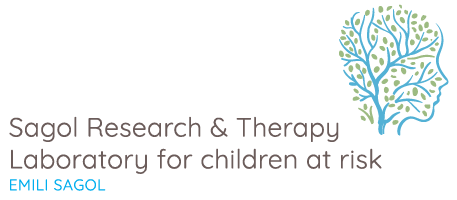According to the website of the Ministry of Welfare, there are more than two million children and youth living in Israel and 330,000 of this population are described as at-risk children facing threatening circumstances. A recent epidemiological survey focusing on violence against children and youth reported that more than 18% experienced sexual abuse, 18% experienced physical abuse, and more than 10% suffered from physical neglect (Lev-Wiesel et al., 2016). The various stressful conditions that children experience include poverty and financial difficulties, an ill parent, the loss of a parent, academic problems, special needs, migration, maltreatment and dysfunctional parental care. These conditions prevent children from experiencing the security and protection that form part of their basic rights. Consequently, they develop problems in various social, emotional and academic domains, and it is often the case that these individuals drop out of normative systems and become delinquent.
A variety of therapeutic provision is crucially needed to prevent further deterioration in this population and promote its healthy development and productive functioning. The Sagol laboratory for the development of assessment, measurement and treatment tools for children and youth at risk was established to accomplish this matter. The laboratory is an applied research laboratory which collaborates closely with policy makers and field practitioners to examine the issues and questions that this population faces and assess their challenges to help children and youth at risk. This collaboration generates practical and effective intervention and assessment tools.
The laboratory is assisted by an advisory committee which includes representatives of government ministries (welfare, education and health), experts from non-governmental organizations (NGO) and academic researchers.
Practitioners who wish to develop diagnostic or assessment tools, validate treatment or interventions tools, or propose a research question relevant to the field, are welcome to contact Dr. Limor Goldner or Prof. Rachel Lev-Wiesel. This e-mail address is being protected from spambots. You need JavaScript enabled to view it. This e-mail address is being protected from spambots. You need JavaScript enabled to view it.






